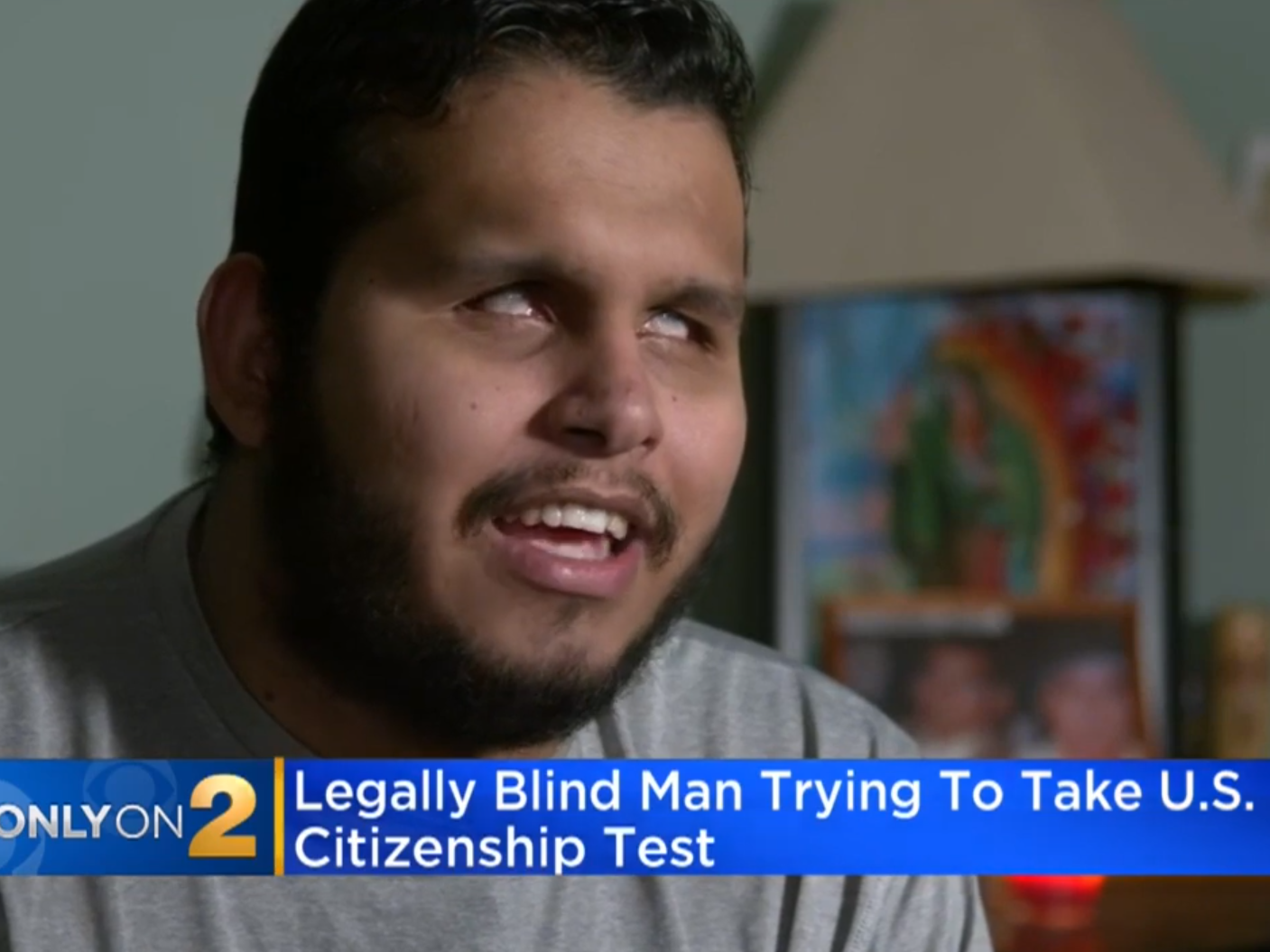Blind man fails US citizenship test after not being provided with braille
Mr Delgado was shocked to only be offered large print for the reading portion of the exam

A blind man failed the US citizenship test after the United States Citizenship and Immigration Services (USCIS) failed to provide the reading portion in braille.
Lucio Delgado moved to the US from Mexico in 2014 and learnt English by listening to the radio.
Mr Delgado asked for braille in his application and got a vision test to confirm he is legally blind, but when he started the test realised it had not been provided to him.
The 23-year-old, who is a legal permanent resident in the US spelled all the English words accurately in the civics portion when he took the test on 21 May.
However, when he got to the reading section Mr Delgado was informed that braille was not available, but that they had large print.
“I’m like, I don’t read large print,” he told CBS News. “I’m totally blind.”
He was told that he would be able to come back for a second interview, but that his eye test from the optometrist would not suffice and that he needed to visit an ophthalmologist.
He doesn’t have health insurance and can’t afford to pay for the specialist service, according to the Washington Post.
Mr Delgado received the letter in February from USCIS confirming he had failed the test.
He was obviously not surprised with the result, but was still shocked braille wasn’t provided to him.
He told the Washington Post: “I really wasn’t expecting not to be provided that very basic accommodation,”
”It was quite a shocker, honestly.”
USCIS told the Washington Post that the test started to be offered in braille in November 2019, six months after Mr Delgado had taken his.
“USCIS has policies in place to ensure accommodations are provided for people with disabilities when requested, and we make every effort to ensure that these policies are followed at all time.”
Join our commenting forum
Join thought-provoking conversations, follow other Independent readers and see their replies
Comments
Bookmark popover
Removed from bookmarks